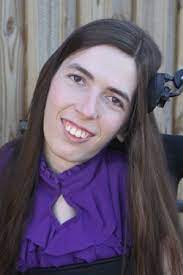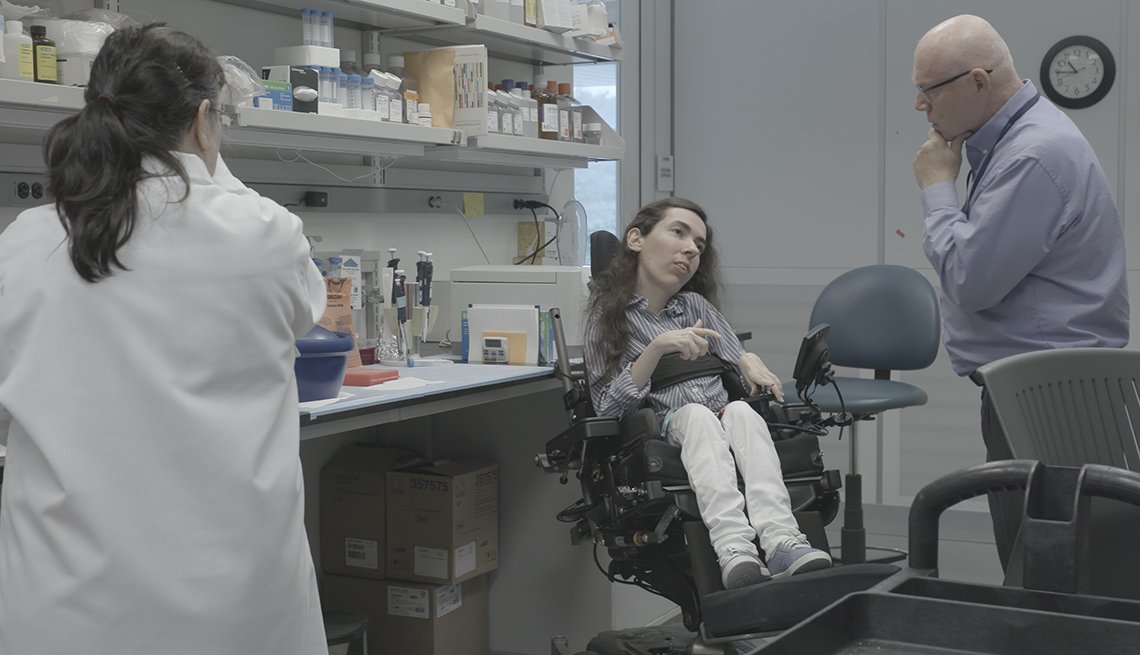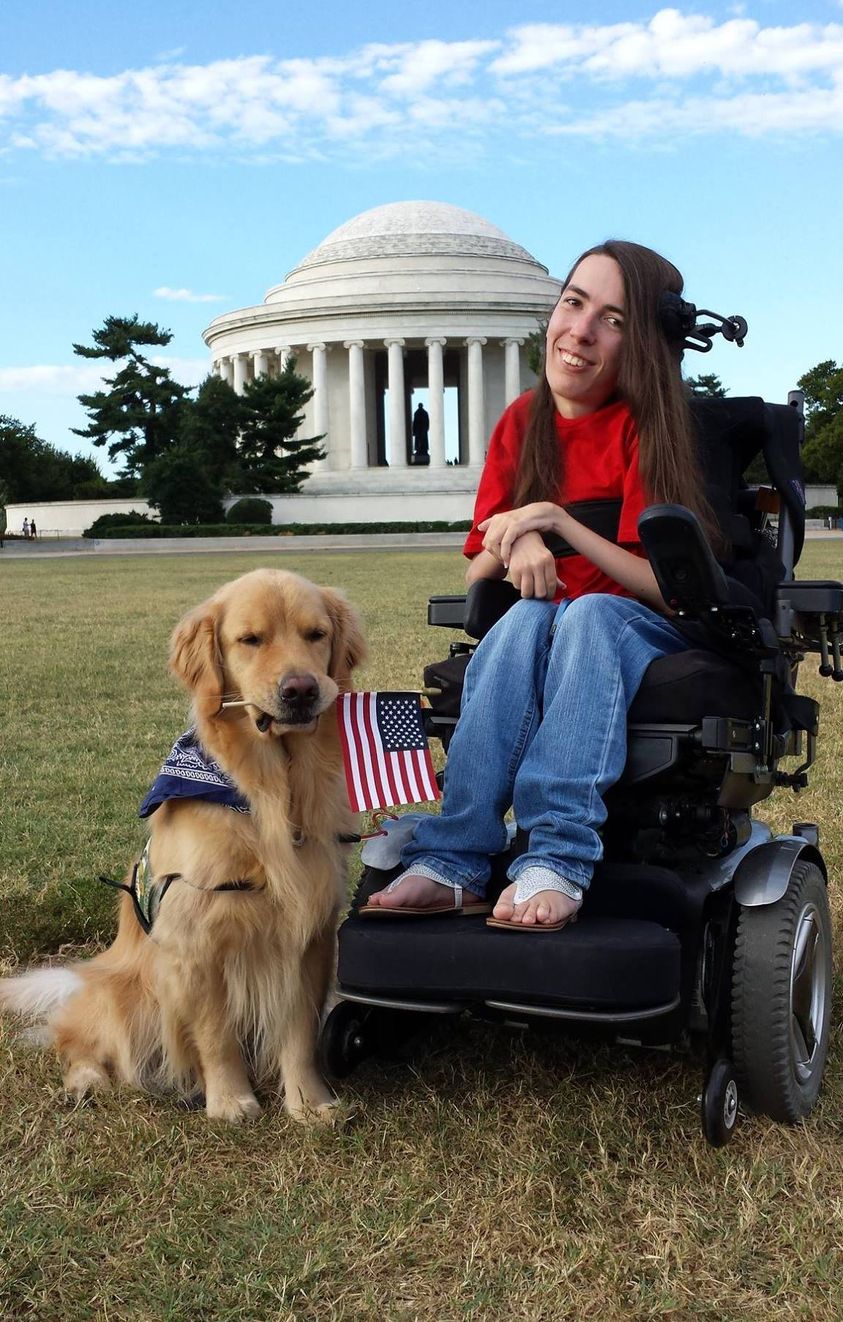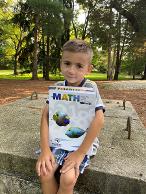
I was diagnosed with SMA (Spinal Muscular Dystrophy) at seven months old. It is a genetic neuromuscular disease characterized by muscle atrophy and weakness. The disease generally manifests early in life and is the leading genetic cause of death in infants and toddlers.
I am interested in how the untranslated regions of mRNAs regulate gene expression, specifically on the implications of these regions in the context of RNA-based therapeutics development for spinal muscular atrophy.
When I was diagnosed with spinal muscular atrophy at seven months old, nobody knew the genetic cause of SMA. In fact, my mom remembers getting a phone call from the president of Families of SMA (now Cure SMA), when I was around two years old saying that the gene was discovered!
In the last two decades, research has progressed rapidly, and the first drug to treat SMA was approved by the FDA on December 23, 2016. While SMA Awareness Month in August is an opportunity to celebrate this exciting era in SMA research, it is also a time to remember all of those for whom the treatment did not come soon enough, and those still waiting to receive treatment. It’s also important to point out that while the treatment is amazing, especially when given early before too many symptoms appear, it is not a cure. There is still work to be done.
At age 16, with the help of the Make-A-Wish Foundation, when I listened to an internationally-renowned choir perform live at the Crystal Cathedral. I even met members of her favorite musical group, Libera, a London not-for-profit boy’s choir. People always say, like, live is not as good, but really it sounded just as good, if not better.

The Make-A-Wish Foundation paid for me, my
mother, father and brother to fly from our hometown of Apopka, Fla., to
California. This was my first time in California and I expected it to be warmer.
I attended the 9:30 a.m. and 11 a.m. services at the Crystal Cathedral on Sunday. Libera performed two songs on stage and afterward the Rev. Robert Schuller introduced me to the churchgoers and to three members of the choir. It’s not something you get to do all the time. service. I even sang “Love and Mercy” with the choir at its afternoon rehearsal and attended Libera’s full concert in the evening.
I have spinal muscular atrophy, a form of muscular dystrophy, and needed around-the-clock care to attend school. According to Florida’s Medicaid provider handbook, necessary services like 24-hour care are suspended after a person turns 21.
During spring 2014, I created a change.org petition that garnered about 7,570 signatures to help raise awareness and my care was reinstated. I received the news that I will be receiving 24/7 care for the 2014-2015 academic year that will enable me to complete my undergraduate degree.
My mother stayed in Miami to ensure that her daughter could finish her studies. I’ve been studying biochemistry in the hopes of finding a cure for spinal muscular atrophy, the condition I was diagnosed with when she was seven months old.
As a doctoral student in the National Institutes of Health Oxford-Cambridge Scholars Program after graduating summa cum laude from the University of Miami in 2015 with a B.S. in Biochemistry. During my undergraduate career, I was involved in research at the Miami Project to Cure Paralysis and The Scripps Research Institute. My academic achievements earned induction into Phi Beta Kappa, an NSF Graduate Research Fellowship, and the David G. Anderson Prize, presented annually to an outstanding graduating senior in biochemistry at the University of Miami. In my doctoral work, I am investigating RNA-based therapeutics for SMA. I have Type II SMA.
Here is what Ken Burns & Siddhartha Mukherjee from The Gene: An Intimate History Documentary wrote about Audrey and her role in this AMAZING study:
Another amazing tale is that of Audrey Winkelsas, a young scientist born with spinal muscular atrophy. She's like Stephen Hawking — disabled, disfigured and confined to a wheelchair, yet making scientific discoveries and helping communicate scientific ideas to a broader public.
The difference: Winkelsas specializes in research on her own disease. She's also a singer who fears her illness will rob her of her voice and community, (Cont'd at Right...)

but clever gene editing shows promise in preventing this. You'll never hear a more soaring note than the one she sings in a hymn of hope with her church choir.
One that I got to know was Audrey Winkelsas. She has Spinal Muscular Atrophy – SMA – in a form that has allowed her to survive to adulthood. She is a scientist, and is studying her own disease. Audrey is in a wheelchair, and uses her hands with difficulty. In the lab her mother performs her experiments under her direction.
One evening she showed us a photocopy of a gel in her notebook which reflected some promising experimental results. But the thing that struck me wasn’t the gel itself but the writing beside it. Each letter seemed to evoke the great physical effort and concentration that had gone into its formation. I thought of my own impatience, how messy my handwriting becomes after the first few sentences. These notes must have taken hours, I thought. How painstaking every component of that research must be! It was clear that SMA did not prevent Audrey from being a skillful scientist. In fact, it was part of what made her one -- it endowed her with tenacity, patience and immense care with detail.
When we filmed with Audrey, I felt she was happy we were with her, but I also sensed that she was aware of the time when we were in her company and, on some level, she didn’t want us to linger with our cameras any longer than was necessary. I began to realize that Audrey had agreed to meet us and to allow us into her life not because she wanted to be exposed to the world or wanted attention for her research, but because she saw this as an opportunity for the world to learn something about SMA. And while she felt a duty to contribute to public awareness and understanding, she also needed to get back to work. There are only so many hours in a day, even if her day runs deep into the night. SMA is progressive; having it, and searching for a way to cure it, is all about time.
My mother has worked diligently with me in the lab as I have worked tirelessly to find a cure and while it has only slowed down and, in some areas, stalled the decline expected, my greatest joy was in helping those who are tested early. I like to feel my long hours of research led to Jase Yoders beating this disease by receiving in time to lead a normal life.
I may need a great deal of physical help throughout the day, but that doesn’t affect my ability to think and speak for myself. When in doubt, it is ALWAYS safest to speak directly to the person about whom you are seeking an answer. If the individual is unable to communicate his or her needs, then the person who is accompanying will know to speak on that individual’s behalf. Rest assured that we do not expect you to automatically know the dynamics of the disability, so instead, we do expect you to treat the conversation just as you would were we not in a chair.
For me I will continue to take one day at a time with hopeful optimism.
I am honored to have had the opportunity to talk with Mr. Alda! I hope that our conversation raises awareness about spinal muscular atrophy and the potential for RNA-based therapeutics to alter the course of many hereditary diseases. I also hope that our conversation communicates that people with disabilities, a group that is considerably underrepresented in science and medicine, have a place in these fields Dr. Audrey Winkelsas. Learn more and listen here: Science Clear & Vivid
Listen now to More info on Researching My Own Disease
Researching Her Own Disease.mp3

